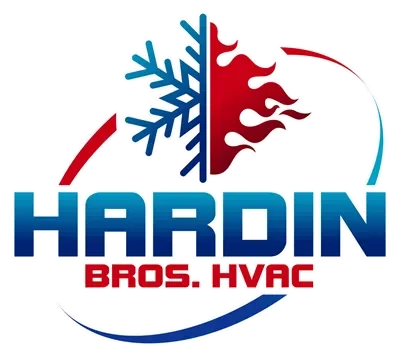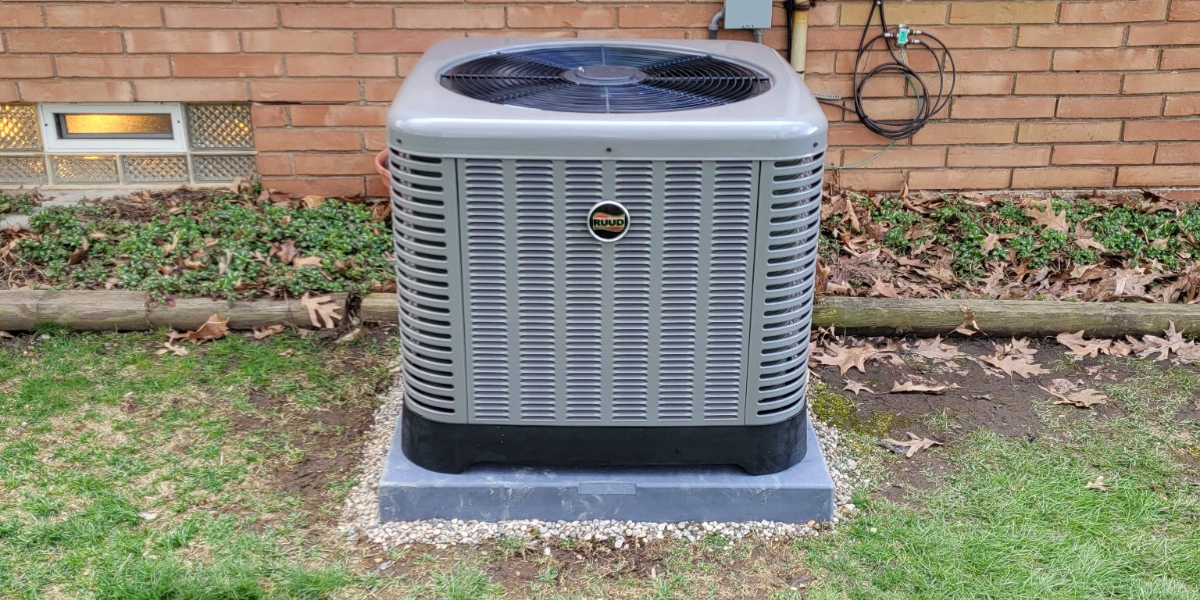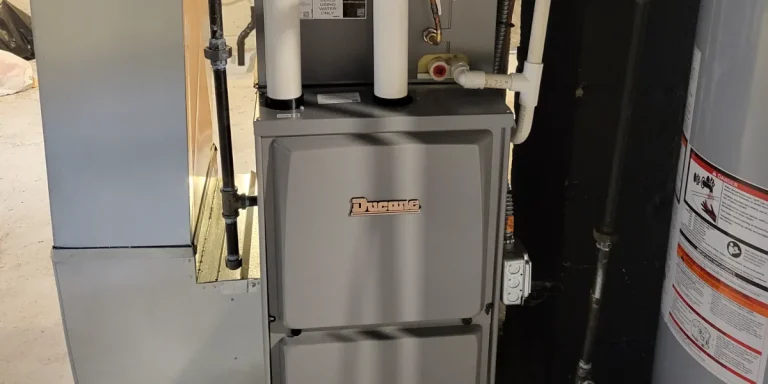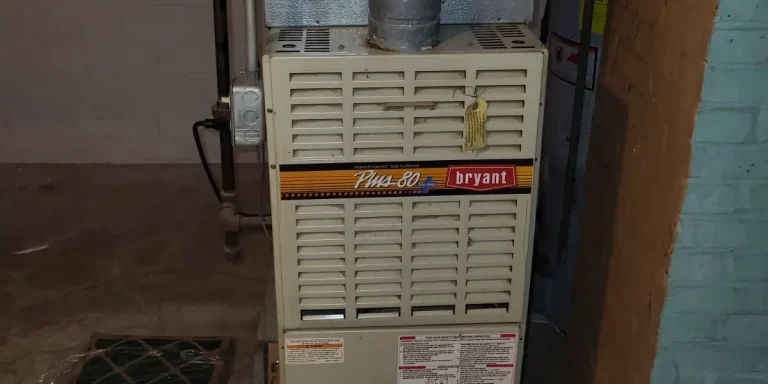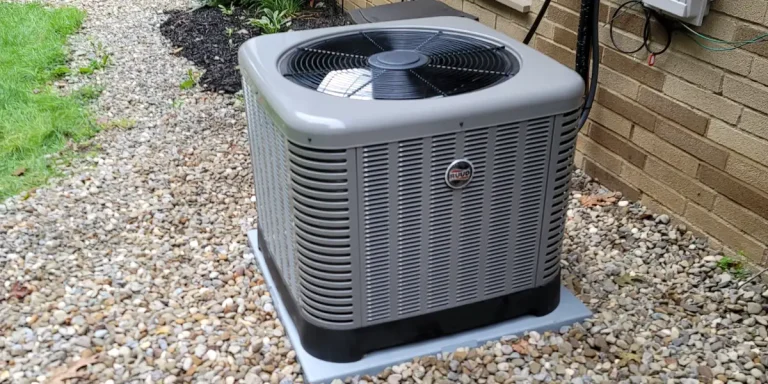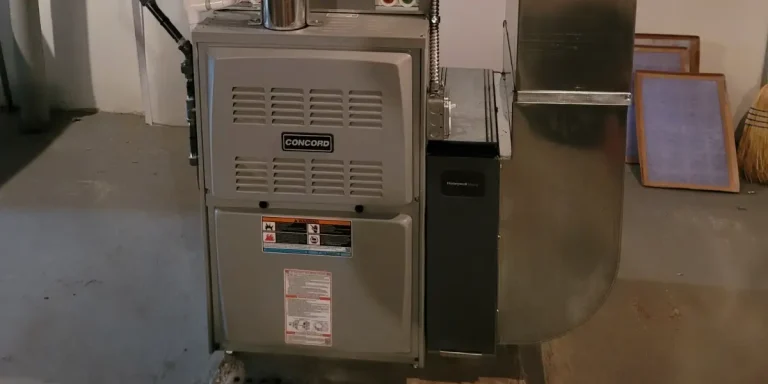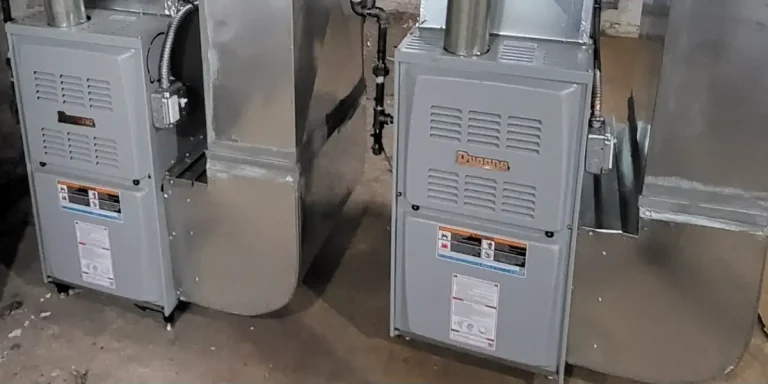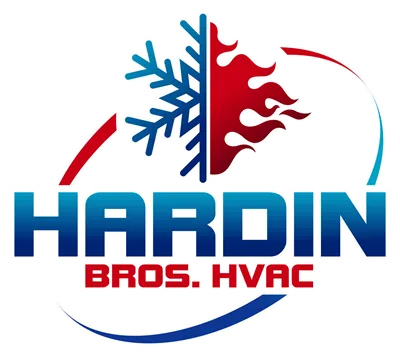How Long Should a Heat Pump Last in Ohio?
Thinking about installing a heat pump in your Ohio home? Or maybe you're wondering if your current system is nearing the end of its life. Either way, it’s important to know how long a heat pump typically lasts—especially in a climate like ours in Cuyahoga County—and what you can do to maximize its lifespan. In this post, we'll walk you through average heat pump life expectancy, factors that impact longevity, and expert tips to keep your system running efficiently for years to come.
Average Lifespan of a Heat Pump in Ohio
On average, a heat pump will last 10 to 15 years in Ohio. With proper care and regular maintenance, some systems can even continue running effectively for up to 20 years. However, Northeast Ohio's climate presents unique challenges that can affect how long your system lasts.
Here’s why:
-
- Year-Round Usage
Heat pumps are used for both heating in the winter and cooling in the summer, meaning they operate nearly all year long. That extended use naturally leads to more wear and tear. - Cold Winter Conditions
Ohio winters can be harsh, with freezing temperatures and snow. In these conditions, heat pumps have to work harder to extract heat from the cold outdoor air, which can reduce system lifespan over time. - Humidity and Summer Heat
In summer, the system works just as hard in the opposite direction—removing heat and moisture from the air. Humidity increases the strain on the unit, especially on older models. - Seasonal Fluctuations
Spring and fall in Ohio often bring unpredictable temperature swings. These rapid changes can cause your heat pump to turn on and off more frequently, which increases stress on internal components.
- Year-Round Usage
While the average range is 10–15 years, how long your system actually lasts will depend on:
-
- The quality of the equipment
- Whether it was professionally installed
- How well it's been maintained over time
- How hard it has to work based on your home’s layout and insulation
If you want to get the most out of your heat pump—and push that lifespan closer to the 20-year mark—routine maintenance and early attention to issues are key.
Why Climate Matters
Ohio’s four-season climate puts more stress on your heat pump than you might realize. Unlike a furnace or AC that runs for part of the year, a heat pump does both jobs—so it runs almost all the time. That continuous use affects how long the system will last.
Here’s how Ohio’s climate impacts your heat pump:
-
- Year-Round Operation
Heat pumps heat in the winter and cool in the summer, meaning they rarely get a break. This constant workload naturally leads to more wear and tear over time. - Hot, Humid Summers
In the summer, your heat pump has to cool your home and remove moisture from the air. This heavy cooling demand can strain components like the compressor and coil. - Freezing Winters
In cold weather, the heat pump works harder to pull warmth from outdoor air—especially during deep freezes. That puts stress on the system and often triggers the defrost cycle, which adds additional wear. - Frequent Temperature Swings
Ohio’s unpredictable spring and fall temperatures can cause your system to cycle on and off more often, reducing efficiency and increasing mechanical stress. - Ice and Snow Exposure
Outdoor units are exposed to snow, freezing rain, and ice during winter, which can clog airflow and force the system to work harder to maintain performance.
- Year-Round Operation
All of these factors combined mean that a heat pump in Ohio often has a tougher job than in milder climates. That’s why professional installation, regular maintenance, and timely repairs are essential to getting the full lifespan out of your system.
What Affects the Lifespan of Your Heat Pump?
Several factors determine how long your heat pump will last:
-
- Quality of Installation – Poor installation can shorten a system’s life. At Hardin Bros HVAC, we ensure every installation is properly sized and set up for optimal performance.
- Maintenance Schedule – Routine maintenance is critical. Dirty filters, clogged coils, and worn components will strain your system and reduce its efficiency.
- Frequency of Use – The more your system runs, the more wear it experiences. Homes using heat pumps for both heating and cooling will see faster degradation than homes with supplemental systems.
- Product Quality – High-efficiency models from reputable manufacturers generally last longer and perform better over time.
- Repairs vs. Replacements – Addressing issues early with timely repairs can prevent bigger problems that could shorten the unit’s lifespan.
5 Ways to Extend the Life of Your Heat Pump
Want to get the most value from your heat pump and avoid unexpected breakdowns? These five tips can help you extend the life of your system, improve energy efficiency, and prevent costly repairs.
1. Schedule Annual Maintenance
Have your heat pump professionally serviced at least once a year—ideally in both spring and fall. During a maintenance visit, a technician will:
-
-
- Clean and inspect key components
- Check refrigerant levels and electrical connections
- Test performance and efficiency
- Catch small issues before they become expensive repairs
-
Routine service keeps your system running smoothly and helps you avoid mid-season breakdowns.
2. Replace Air Filters Regularly
Your heat pump’s air filter protects the system from dust, dirt, and debris. When it gets clogged, it restricts airflow, forcing your system to work harder.
-
-
- Replace filters every 1 to 3 months, depending on your household (pets, allergies, or high use may require more frequent changes)
- Clean filters improve efficiency and indoor air quality
-
This is one of the easiest—and most affordable—ways to protect your HVAC system.
3. Keep Outdoor Units Clear
The outdoor unit needs plenty of space to "breathe." When it gets covered with leaves, snow, or yard debris, airflow is blocked, which can lead to overheating and performance issues.
-
-
- Clear at least 2–3 feet around the unit
- After snowfalls, brush off any buildup that could block air intake or freeze components
- Avoid stacking items or landscaping too close to the unit
-
A clear, well-ventilated outdoor unit performs better and lasts longer.
4. Install a Smart Thermostat
A smart thermostat helps your system run more efficiently by adjusting temperatures based on your habits, schedule, and even outdoor weather.
-
-
- Reduces unnecessary runtime and energy use
- Helps maintain steady indoor comfort without overworking the system
- Many models offer remote control via smartphone apps
-
This small upgrade can lead to big savings and less strain on your heat pump.
5. Don’t Ignore Strange Sounds or Odors
If your heat pump starts making odd noises—like grinding, squealing, rattling—or you notice unusual smells, don’t wait to get it checked out.
-
-
- These are often early signs of mechanical problems
- Delaying repairs can cause more damage and shorten your system’s life
- A fast response can often mean a simple fix instead of a full replacement
-
If something doesn’t sound or smell right, it probably isn’t. Give us a call.
When to Consider Replacing Your Heat Pump
Even the best-maintained heat pumps won’t last forever. In Ohio’s climate, most systems perform reliably for about 10 to 15 years. After that, efficiency drops and repair costs often go up.
Here are clear signs it may be time to replace your heat pump:
-
- It’s 12–15+ years old – Older systems are less efficient and more likely to break down.
- Rising energy bills – A sudden increase could mean your system is working harder than it should.
- Frequent repairs – If you're calling for service multiple times a year, the costs add up quickly.
- Uneven heating or cooling – Struggling to keep your home comfortable can be a sign your system is failing.
- Short cycling – Constantly turning on and off wears out components and wastes energy.
- Loud or unusual noises – Grinding, rattling, or buzzing sounds can indicate major mechanical issues.
- Outdated technology – Newer systems offer better efficiency, quieter operation, and smart features.
Replacing your heat pump might seem like a big step, but it often leads to:
-
- Lower monthly utility costs
- More consistent indoor comfort
- Improved indoor air quality
- Fewer breakdowns and repair headaches
At Hardin Bros HVAC, we provide honest assessments and help you determine if repair or replacement is the smarter long-term option. Our goal is to keep your home comfortable—and your costs under control.
Why Choose Hardin Bros HVAC for Heat Pump Services?
We’ve built a reputation in Cuyahoga County and surrounding areas for providing honest, high-quality HVAC services. Whether you need heat pump repairs, new system installation, or seasonal maintenance, our experienced technicians are here to help. We don’t cut corners, and we stand by our work.
Proudly Serving Cuyahoga County and Nearby Communities
Hardin Bros HVAC provides expert heating and cooling services to homeowners and businesses in:
-
- Cleveland
- Rocky River
- Fairview Park
- Lakewood
- North Olmsted
- Parma
- Parma Heights
- Middleburg Heights
- Strongsville
- North Royalton
- Broadview Heights
- Valley View
- Westlake
- Brook Park
- Brooklyn
- Independence
Wherever you are in the Cuyahoga County area, you can count on us for reliable, professional HVAC service.
Schedule Your Heat Pump Service Today
If your heat pump isn’t performing like it used to, or you’re considering upgrading to a more energy-efficient model, now’s the time to take action. Call us today or request a estimate. We’re local, dependable, and ready to help you stay comfortable year-round—no matter what Ohio’s weather throws your way.
We proudly serve Cuyahoga County with expert heat pump installations, repairs, and maintenance. Let’s make your home more efficient and comfortable today.
